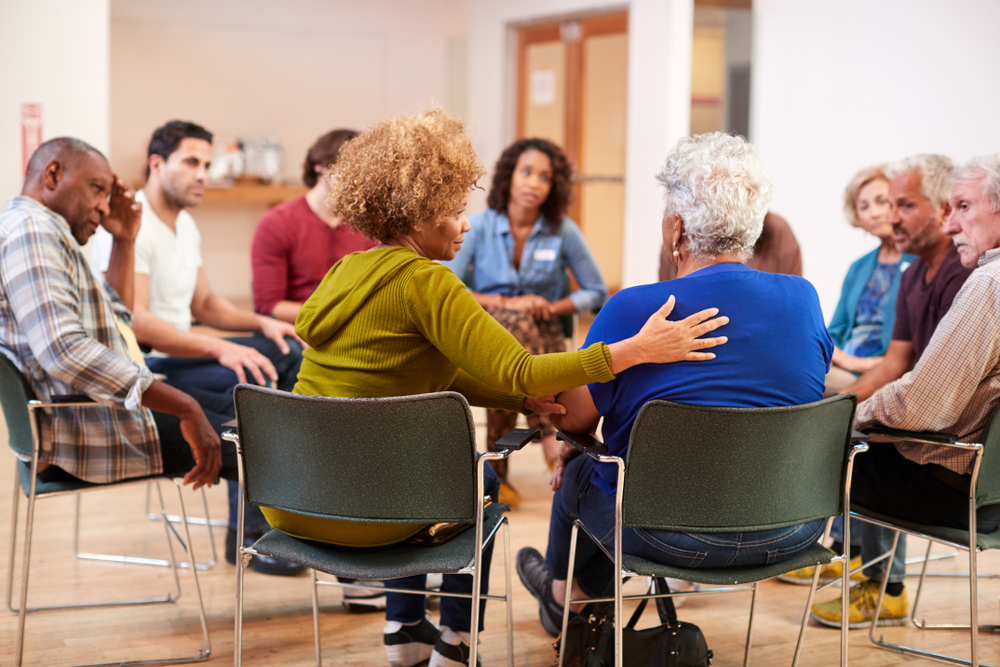Counseling groups are one of the most common forms of mental health services offered by counselors and therapists because they are proven to be successful for people of all ages and backgrounds. Group counseling involves a psychologist who is responsible for leading a group of anywhere from five to 15 patients. Generally, groups get together for one or two hours per week. Some people participate in both individual counseling and group counseling, while others attend group sessions only.
The group experience is designed to focus on a specific issue such as substance abuse, chronic pain, social anxiety, panic disorder, obesity, depression, eating disorders, or other mental disorders. Other groups are designed to generally address issues, including low self-esteem, loneliness, shyness and anger. Groups may also help individuals currently or previously suffering from a loss, whether it be a child, spouse or a loved one who committed suicide. A weekly support group allows people struggling to relate to other group members, share their story, feel less alone, and make friends.
Benefits of Group Therapy
Although joining a therapy group of strangers may be intimidating, group counseling provides a number of benefits over individual therapy, and members may be surprised at how much group therapy can help. The group setting can actually act as a sounding board and a support network. Other members can help one another develop certain methods for meeting a life challenge or improving a difficult situation and hold each other accountable along the way.
Listening and talking to others on a regular basis can help patients to put their own problems in perspective. Although many suffer with mental health complications, few openly speak about them to others they don’t know. Patients may feel as though they’re the only ones struggling, but they’re not, and it can be a weight off of someone’s shoulders to hear others discuss what they’re facing. By the same token, diversity in a group can also be a beneficial aspect of counseling. People have different backgrounds and personalities, and they will look at problems or situations in different lights. By seeing how others handle obstacles and make positive, successful changes in their lives, group members can discover new techniques for facing their own obstacles.
Featured Programs
Although group members offer valuable support, formal group counseling sessions offer additional benefits beyond support groups and self-help from their group leaders. One or more psychologists who have gained specialized training lead these group therapy sessions, and these individuals teach the group effective techniques for tackling their problems. For instance, if someone is in an anger management group, the psychologist may discuss strategies based on scientific studies dedicated to anger control. This expert guidance adds another layer of assistance to help members make the most out of the group therapy experience.
The time commitment for a particular group therapy depends on not only the nature and extent of an individual’s problems but also the type of group itself. Whereas short-term therapy groups devoted to concrete issues may last six to 20 weeks, support therapy groups such as those dealing with cancer or medical illnesses may last longer. There are also open-ended groups in which members work at their own pace and leave when their goals or needs have been met.
Group therapy helps members improve their interpersonal relationships, increase their social skills, learn about themselves, and ultimately provide a safe place for personal growth. Group members learn how to work through feelings of anxiety, depression, anger or isolation, and it helps people make positive changes so that they feel better about the quality of their lives.
Group counseling is a collaborative effort as members work together to express their own reactions, ideas, feelings and problems as honestly and freely as possible. Members in group counseling not only work to understand their own situations but also become therapeutic helps for others in the group. When we communicate effectively how we are feeling and receive support, the world can feel so much brighter. If someone is looking to attend group counseling or lead their own therapy group, they can reach out their local counseling center for more information.
Related Resources:


